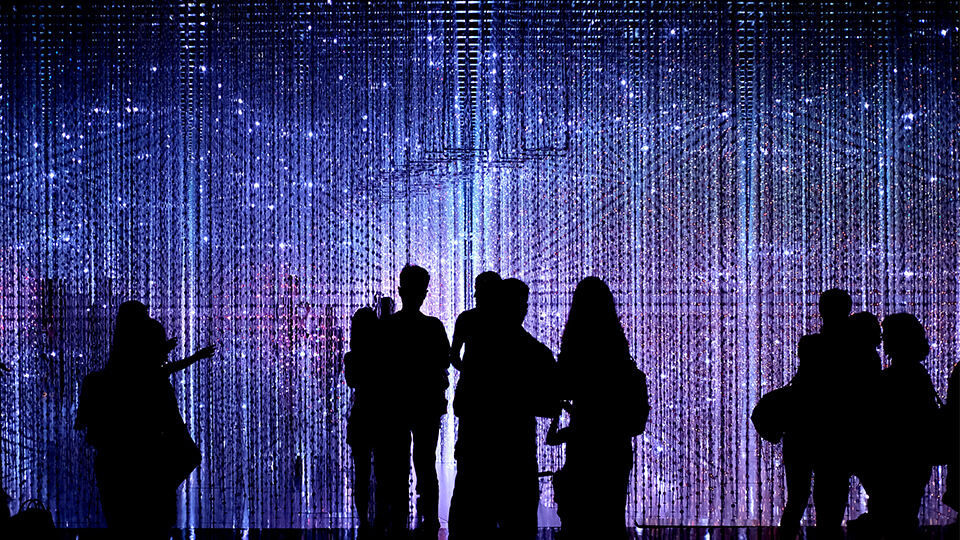In part two of this article, our experts continue the exploration of digital technologies transforming the arts and culture industry, discussing how leaders can adapt and build on the opportunities presented.
Part one of this article, The Digital Renaissance of the Arts & Culture Industry, explores the current landscape in the UK and Australia.
Middle East
In Saudi Arabia, in light of their Vision 2030 programme which aims to diversify its economy and enrich the cultural landscape, the significance of digital transformation within the arts and culture sector cannot be overstated. This strategic vision aligns perfectly with the broader goals of enhancing the quality of life and establishing Saudi Arabia as a global hub for culture, arts and entertainment.
The current digital transformation landscape considers these objectives by examining how technological advancements can both foster cultural enrichment and pose challenges that need strategic leadership to overcome.
The integration of digital technologies in the arts offers unique opportunities for growth and innovation, yet it also requires careful consideration of its impact on cultural integrity and diversity. As Saudi Arabia strides towards achieving the milestones set out in Vision 2030, the role of digital transformation in arts and culture plays a pivotal role in this transition. This offers a framework not only for economic diversification, but also for a reinvigorated cultural identity that resonates on a global scale.
Germany
Max Hollein is an example of a museum manager who recognised the digital mediation potential for the museum early on and was one of the first German-speaking museums to make the Städel Museum's collection completely available online in 2015 as part of a digital strategy. Today, he focuses on the opportunities that AI offers museums. Shortly after taking up his post at the Metropolitan Museum of Art in New York, he held a hackathon in 2019 together with Microsoft and the Massachusetts Institute of Technology (MIT) to explore how AI could connect people with art. The result was five AI prototypes, each of which could be further developed as new projects.
The ZKM Centre for Art and Media Karlsruhe is a unique cultural institution that extends the original tasks of the museum. ZKM’s mission is to facilitate a comprehensive engagement with art and media technology as an institution for research, cultural mediation and continuing education. In Director Alistair Hudson’s current project on AI, the ZKM becomes an interactive learning space which enables the visitors to explore their relation to technology intuitively.
The current digital transformation landscape within the arts and culture industry presents both opportunities and challenges. Technological integration offers unprecedented possibilities for artists to generate new revenue streams and communicate more directly with their audience. This environment serves as a platform for artistic innovation and economic growth, with digital platforms playing a key role in democratising access to art.
However, this shift also brings substantial challenges. The dominance of large technology companies could lead to a concentration of power that potentially undermines cultural diversity and creative integrity. There is a risk of the cultural sector becoming overly dependent on technology, where economic interests might outweigh artistic values.
Leaders in the sector must ethically and effectively deploy these digital tools, striking a balance between commercial benefits and preserving cultural and artistic values.
This requires not only technological expertise but also a strategic vision that supports artistic freedom while fostering technological advancements. Leadership must proactively integrate technological trends while maintaining engagement with their communities and upholding high ethical standards.
This synthesis of perspectives provides a holistic view of the role of leadership in an era where art and technology converge, which is crucial for shaping a sustainable future within the arts and culture sector.
By adopting a forward-thinking and flexible mindset, arts and culture leaders can capitalise on the potential of digital technologies to drive future growth, inclusivity and artistic excellence. Thanks to Odgers Berndtson’s global presence, our network can identify, attract and develop world-class leaders with the talent, technological acumen and social responsibility to secure growth within this ever-competitive industry.
__________________________________________________________
Get in touch. Follow the links below to discover more or contact our dedicated leadership experts from your local Odgers Berndtson office here.

Never miss an issue
Subscribe to our global magazine to hear our latest insights, opinions and featured articles.
Follow us
Join us on our social media channels and see how we're addressing today's biggest issues.



